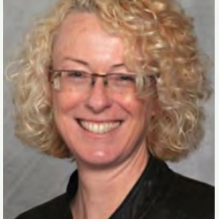
Articles
-
1 week ago |
wasterecyclingmag.ca | Emily Atkins
The Regional District of Fraser-Fort George in British Columbia is ending its agricultural plastics collection at the end of June, 2025. The pilot project, run by CleanFarms, was unable to continue due to lack of funding, the region said. When the program ends there are no mechanisms in place for ag plastics to be diverted from landfill because provincial regulations do not include them.
-
1 week ago |
wasterecyclingmag.ca | Emily Atkins
FortisBC Energy Inc. (FortisBC) has received approval from the British Columbia Utilities Commission (BCUC) to continue its Clean Growth Innovation Fund. The funding will further accelerate efforts to drive innovation in B.C.’s energy sector. The continuation of this initiative, which is part of FortisBC’s 2025-2027 Rate Setting Framework, reinforces the company’s commitment to help to advance innovation projects that support the transition to a lower carbon energy future for British Columbia.
-
1 week ago |
wasterecyclingmag.ca | Emily Atkins
On June 25, Claigan Environmental Inc. will provide a walkthrough of the Canadian Federal Plastics Registry excel submission form. In this webinar, Claigan will preview the various tabs and pull-down menus, explaining each as they go. The Federal Plastics Registry (FPR) collects data from organizations across the plastics value chain. It helps monitor and track plastic from manufacture to end of life.
-
1 week ago |
wasterecyclingmag.ca | Emily Atkins
POINT.P, a Saint-Gobain subsidiary, and Canadian company CarbiCrete, will be opening a production line to manufacture decarbonized concrete in Hauts-de-France beginning in the first quarter of 2026. The two companies signed a cooperation agreement two years ago, which is culminating in the production plant opening next year. The concrete blocks it produces avoid 100% of cement-related emissions, and permanently sequester carbon dioxide.
-
1 week ago |
wasterecyclingmag.ca | Emily Atkins
An autonomous marine debris cleanup platform has been launched off the coast of Taiwan. Developed by Taiwan-based smart-phone accessory maker Rhinoshield, the device, called CircularBlue, comprises three parts: solar-powered platforms that passively collect debris; AI-enabled scout drones that locate waste; and, GPS-guided surface vessels that retrieve debris. It is about half the size of a swimming pool, the company said.
Try JournoFinder For Free
Search and contact over 1M+ journalist profiles, browse 100M+ articles, and unlock powerful PR tools.
Start Your 7-Day Free Trial →